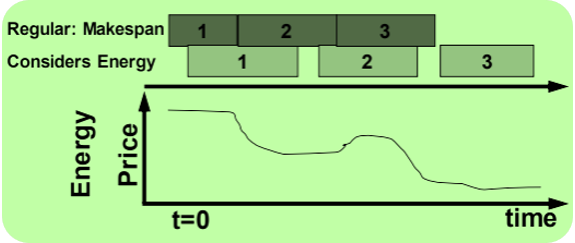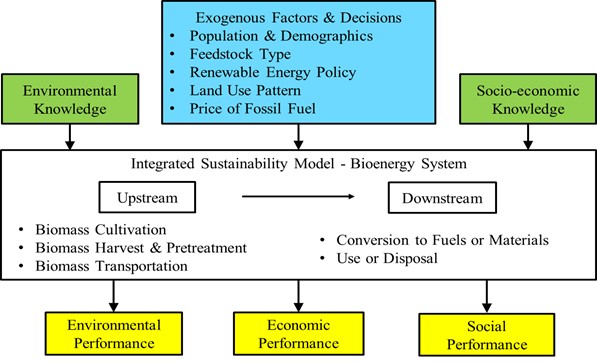Other Topics
Bio fuels
Our research lab conducts detailed Techno-Economic Analysis (TEA) and Life Cycle Assessment (LCA) of biofuels to evaluate their viability as sustainable energy sources. Through TEA, we assess the economic feasibility of various biofuel production processes, examining costs, profitability, and market potential. Concurrently, our LCA examines the environmental impacts associated with biofuels, from feedstock cultivation to end-use, focusing on greenhouse gas emissions, land use, and resource consumption. By integrating TEA and LCA, we aim to identify pathways for optimizing biofuel production while minimizing ecological footprints. Our findings provide critical insights for policymakers and industry stakeholders in advancing sustainable biofuel technologies.
Green Manufacturing
Green Manufacturing is a manufacturing that minimizes waste and pollution achieved through sustainable design. It integrates the economic benefits with environmental impact and covers the whole life cycle of products from design, production, assembly, transportation, recycling, and disposal. The recovery and reuse for end-of-life products are the key steps to achieve green manufacturing.
To efficiently recycle the remaining value of obsolete products, we study a reverse process of assembly i.e. disassembly. The disassembly planning problem needs to decide the disassembly sequencing and the end-of-life ways for products. Our goal is to find a profitable and environmentally friendly disassembly sequence while making the recycling decisions for every part of products.

Sustainability Impacts
A fundamental concept of sustainability includes three pillars: environment, economy, and society. The impact assessments of sustainability need to incorporate all three dimensions to better understand the performances of a process, product, or a system on environmental, economic, and social aspects. An integrated sustainability model (ISM) can be considered as a transdisciplinary and participatory process that combines and connects knowledge from diverse scientific domains.
The ISM uses system dynamics to build complex interactions between key variables in order to capture the dynamic changes of environmental, economic, and social impacts. Our team in the LSM have applied the ISM to bioenergy systems to estimate their sustainability performance in terms of significant indicators of environment, economy, and society. The ISM can assist stakeholders and policy makers in decision making and strategic planning by providing comprehensive insights on the sustainable development of a bioenergy system.

